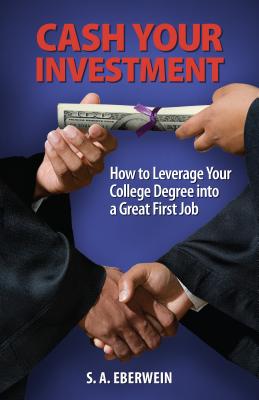Life After College: Am I Ready?
Around this time next year, I will be graduating from college.
I honestly can’t believe how quickly the four years have gone by. I’m excited to see what my future holds but I’m nervous!
Often, I think about how I will translate my four years of studying, writing papers, and taking exams into a successful career.
How will I be able to land my dream job?
What are the right steps that I need to take?
Will everything work out the way I want it to?
I sure hope so because I think about my dream job every day. I think everyone does. My dream job would be to work for a newspaper or magazine company as one of the head writers. My office will have large windows overlooking the New York City skyline. Each morning, I will meet with my team to discuss either story ideas or progress on ones that were started.
Sometimes, I feel that my dream is within my reach but other moments, I feel it’s unattainable.
As daunting and overwhelming thinking about the future can be, I have been reading the perfect book to help me navigate through my final year and land the job of my dreams. In Cash Your Investment: How to Leverage Your College Degree Into a Great First Job, author Scott A. Eberwein helps college students land their dream job with advice on resume writing, job-search strategies, and interviews.
Eberwein secured a position with a reputable investment banking firm in New York City. Landing the job was not an easy task. When Eberwein was a college undergraduate, he faced many setbacks in gaining the attention of top level employers. Although the process of trying to get his dream job was tedious, he worked hard and developed specific strategies which aided in landing the position.
Now, Eberwein wants to share the knowledge he has gained through the years with students who want to land a great first job.
The first chapter of Cash Your Investment focuses on one’s mindset when getting ready to start the journey of searching for jobs. The frame of mind someone is in is crucial because it will either help or hinder their success.
Eberwein compared the mindset one should have when going to get a job to when a colleague of his was trying to talk to women at a bar. His colleague didn’t enter the bar with confidence to approach the ladies there, so he didn’t get any phone numbers.
When you enter a situation doubting yourself, you don’t get far. Self-doubt is detrimental to one’s mindset and success. Eberwein refers to the perfect frame of mind as an “Optimum Mindset.” He writes, “In order to successfully navigate your end-of-college crossroads and land gainful, full-time employment in your favored field, overcome any insecurities that threaten to sabotage your operation” (3).
I definitely agree that having a positive mindset can be the deciding factor on if you get the job or not. Three years ago, I went on a job interview for a library position and started to have doubts as time drew closer to the day of the interview. I kept thinking, “What if the other candidates have a better resume than I do?” I quickly snapped myself out of it because if I stayed with the negative mindset, I would not have performed to the best of my ability.
If you do struggle with obtaining an A-1 mindset before an interview, Eberwein suggests repeating psyche-building phrases to yourself on a regular basis such as, “I will land a great first job after graduation.” Once one develops the confidence to approach an interview with confidence, it’s hard to lose it.
Who’s the one person a college senior can count on to help with advisement and direction? It is none other than a mentor of course. Eberwein dedicates chapter two in explaining the benefits of utilizing your mentor. He broadens the range of who a mentor can be for an undergraduate. He writes, “…consult a shrewd, and experienced voice from the professional arena. This could be an elder family member, colleague, or other pertinent figure who has made the transition from industrious undergraduate to gainfully employed wage earner” (12).
Mentors give valuable advice to students on how to prepare for interviews and crafting the best resume possible. In one semester, I meet with my mentor, Ana to update and fix my resume about four to five times. She gives me insight on how to properly word my new experiences and skills in order to attract future employers. As an undergraduate, Eberwein’s mentor was honest and helpful when he did a first draft of his resume. He had to do numerous revisions until it was up to par.
Resumes are a working document and will require a number of changes. Within the book, Eberwein featured three different resume samples. It was helpful to see the different ways that I could format my own resume. By using the samples, I spruced up my resume and it looks better than before.
In chapter three: Conduct an Exhaustive Job Search, Eberwein writes a line that puts my four years of college into perspective. “Why invest appreciable sums of money, time, and personal exertion into the higher educational experience only to fumble in translating your investment into a rewarding post-college career?” (30).
College is surely an investment and in order to be successful after it, you have to put in the work. Looking for a job is not an easy process and Eberwein suggests to start it by reorganizing your everyday routine. For the first three years of college, students are focused on academics and getting the highest grades. Eberwein thinks that for your senior year, you shouldn’t completely neglect your studies but put job searching in the forefront. He says, “Make no mistake: you signed up for four years of the scholastic meat grinder in order to garner access in to premium end of the professional employment spectrum” (29). So, be ambitious in getting the job that you want. Section out the time to look for the jobs and work hard to achieve it.
Throughout the book, Eberwein gives students the “inside scoop” on how to be successful after college. What I appreciated the most were the personal stories he shared. After reading Cash Your Investment, I felt more confident in my ability to land a great first job after college. It’s always comforting to hear from professionals who had struggles but persevered and are now a success. Eberwein represents that you can start by not knowing much about how to get the perfect job but learn along the way.
Here’s the link to purchase Cash Your Investment: http://www.amazon.com/Cash-Your-Investment-Leverage-College/dp/1612542328/ref=sr_1_1?ie=UTF8&qid=1454532036&sr=8-1&keywords=cash+your+investment
I’m sure you’ll gain valuable knowledge about landing the best first job after college, just like I did. So invest today and pick up the book that will help you translate your diploma into the career you want.

Shantal Marshall is from Brooklyn, New York and majors in journalism at Mercy College. Her hobbies include reading O magazine, listening to music, and...








